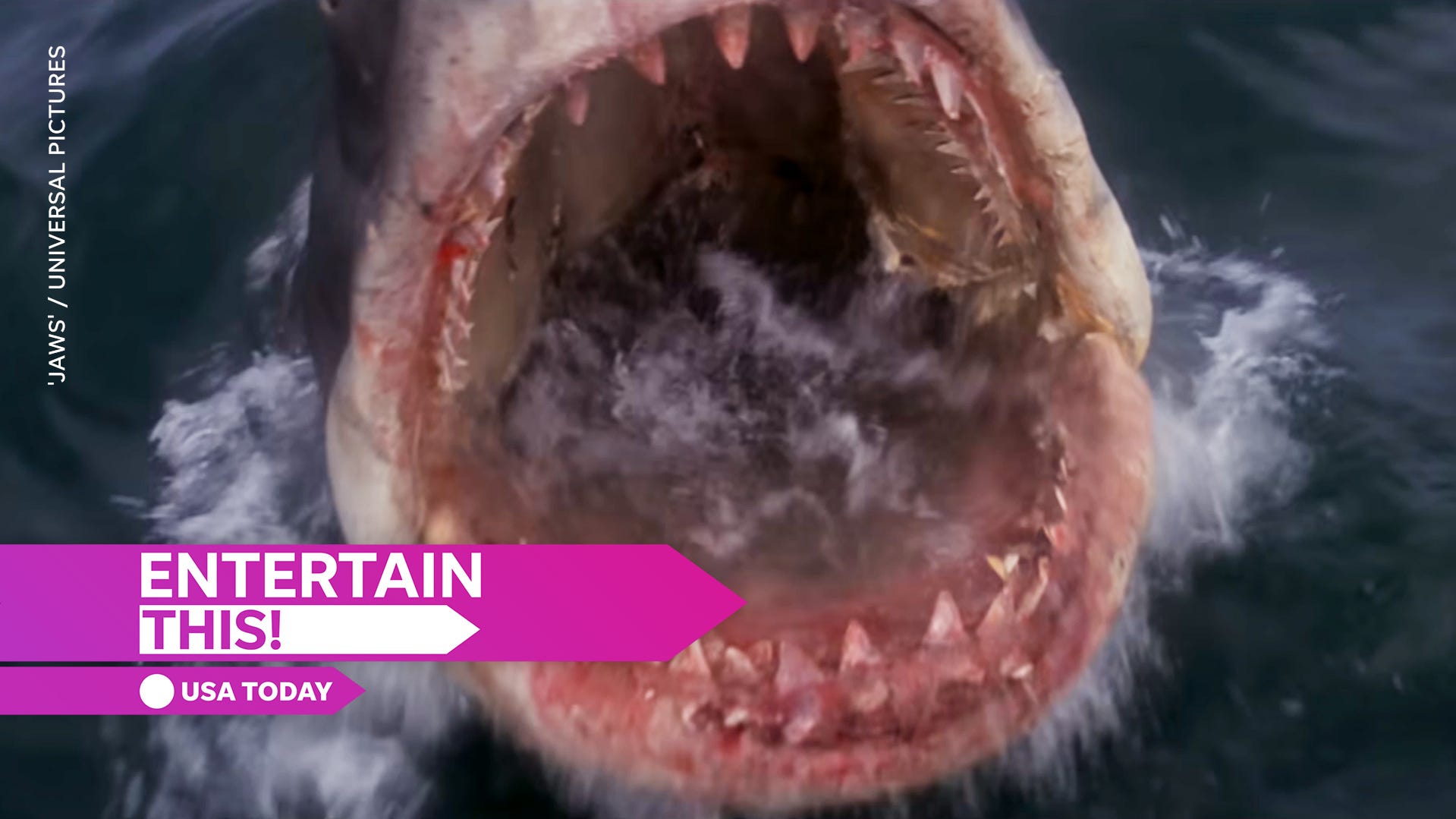My husband wrote 'Jaws.' We need to better protect the oceans he loved. | Opinion
It is almost quaint that in the 1970s, when 'Jaws' hit movie theaters, people considered sharks our greatest ocean threat. Today, our oceans face many urgent challenges.

When my late husband, Peter Benchley, and I celebrated our 40th anniversary, I had one wish: to go cage diving with great white sharks. After decades of ocean expeditions together, I’d often been the last one in the water − if I made it in at all. This time, I wanted to come face-to-face with the animals we now know are critical to ocean health.
June 20 marks the 50th anniversary of when "Jaws" − the blockbuster film based on Peter’s bestselling novel − first hit the big screen. What began as a fictional thriller about a coastal town became a cultural phenomenon. It thrilled audiences. It scared them, too.
But it also sparked something else: fascination and wonder.
In the years after "Jaws," Peter received thousands of letters from people all over the world. Students, teachers, divers and future marine biologists − they were all curious about sharks and the ocean. Many wanted to be like Matt Hooper, the young ichthyologist played by Richard Dreyfuss in the movie.
'Jaws' helped spur conservation research
This curiosity opened the door for shark and ocean conservation research, which has transformed our understanding of the ocean. We joined scientists on ocean expeditions and saw the damage firsthand: shark finning, plastic pollution, dying reefs.
We have learned that more than 100 million sharks are killed each year to keep up with demand for shark fin soup in China and across Asia. However, thanks to the tireless efforts of conservationists and powerful public awareness campaigns, demand for shark fins has declined.
It is almost quaint that in the 1970s, people considered sharks our greatest ocean threat. Today, the ocean faces many urgent challenges.
Climate change. Overfishing. Illegal and unregulated fishing. Deep-sea mining. Plastics. Offshore drilling. Warming and acidifying oceans. These aren’t science fiction − they’re happening now.
This National Ocean Month, I hope scientists, activists, policymakers, legislators and state, local and federal leaders − and ocean lovers everywhere − will join this year’s Peter Benchley Ocean Award winners and step up to support legislation to protect marine areas.
Say no to expanded offshore drilling. Defend special places like sanctuaries and monuments. Choose sustainable seafood. Donate to conservation organizations. Volunteer for a beach cleanup. Visit your local aquarium and learn what’s at stake.
We still have much to learn about our oceans
The ocean covers about 71% of our planet, yet we’ve explored only a tiny fraction of it. The vast majority of this enormous blue underworld is yet to be revealed.
Each year, scientists discover new species − recently, a new species of guitar shark, for example. We could lose the opportunity to make such discoveries if we don’t act quickly.
As police chief Brody (Roy Scheider) famously said in "Jaws," "We’re gonna need a bigger boat.”
"Jaws" brought sharks and the ocean into the public imagination. Let’s use this moment to protect it.
We need all hands, working together, to fend off interests that would use the ocean to extract resources, threaten biodiversity and sacrifice cherished marine life.
Wendy Benchley is an award-winning ocean advocate and scuba diver. She is cofounder of the Peter Benchley Ocean Awards, serves on the boards of WildAid and Blue Frontier and is an advisory trustee for the Environmental Defense Fund.